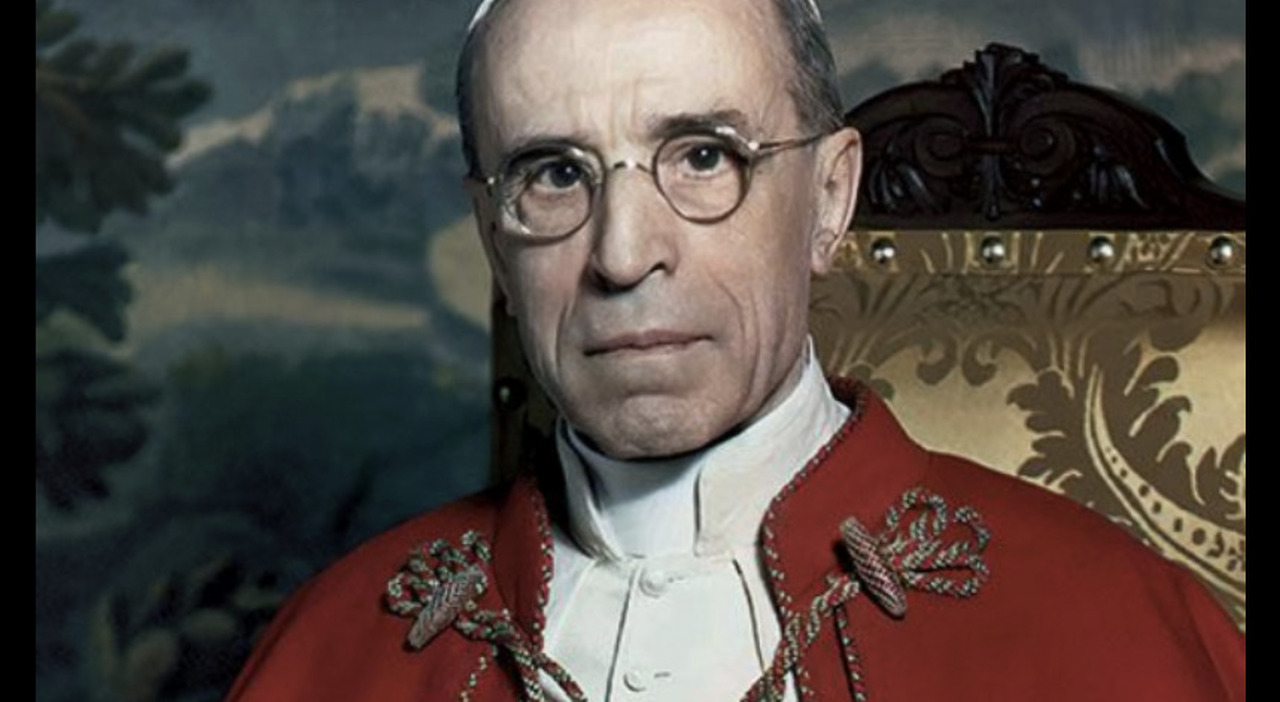Tuesday 13 February 2024, 13:04
The opening of the Vatican archives on Pius XII (1939-1958) is helping historians to have a comprehensive and more truthful view of that pontificate. For example, it helps to understand how various governments reacted to Hitler's decision to proceed with the final solution after the Wannsee Conference. The chancelleries did not immediately credit the denunciations of many rabbis (not being able to verify the information) while Pacelli had already activated a network to help the Jews. Pius XII, pressure on him from the Polish government in exile because he denounced the Shoah in 1942. The text of the Declaration of German war crimes in Poland, signed by the USA and Great Britain, on August 30, 1943, for example, did not mention the gas chambers at all because that fact could not be proven. 'All this emerges from the papers but this does not mean that they were ever accused of silence in the face of the gas chambers, as happened to Pacelli in the post-war period,' notes historian Matteo Luigi Napolitano, author of The Century of Pius XII (Luni Editrice, 624 pages, 26 euros), a book that unties many knots and sweeps away the black legend of the Pope's silences. It is an impressive fresco that starts from the supposed secret political negotiation between Pius XII and Hitler 'which never existed'. The proof is contained in the minutes that define a 'failure of success' the visit of the Nazi foreign minister von Rippentrop to the Vatican. Or the chapter on 'racism in Croatia' and the role played by then Bishop Stepinac, later cardinal. He was one of the main contacts between the Grand Rabbinate of Croatia and the Vatican to save thousands of human lives. In the pages of the volume, however, another aspect concerning the anti-Semitism of the Church of the time also emerges. Emblematic is the story of Jan Vojtassak, a Slovak bishop who died in the sixties and persecuted by communism that the Vatican would like to make a saint: the cause of beatification opened in 2003 still lies today waiting for decisions superior to the Congregation of Saints. So far no one has made it fall for unworthiness. Napolitano has ascertained that in 1942 Vojtassak did not lift a finger in front of the decision of the State Council (of which he was a part) to deport to Auschwitz thousands of Jews. France, during the Nazi occupation 57 bishops out of 80 helped the Jews to save themselves. In a note from Monsignor Tardini addressed to Pius XII, it reads: 'I was told that, during the session in which the deportation of the Jews was discussed, Vojtassak, instead of rising against the inhuman project, would have maintained a passive attitude. Later, speaking with another bishop, he would have let it be understood that, in his opinion, it would have been better if the ecclesiastical authority had remained outside, that it did not create obstacles to the Government, that the Jews are the worst enemies of Slovakia'. Vatican, over 6,000 Jews in Rome were saved thanks to the action of Pius XII.
© ALL RIGHTS RESERVED
This article is automatically translated
